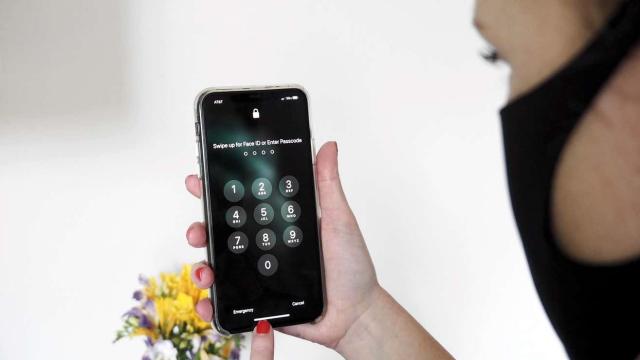One of the best things about iOS 14.5 was it introduced the “Unlock with Apple Watch” feature — a clever solution to masks mucking up FaceID in the pandemic. Now as folks begin digging through the iOS 15 developer beta, it looks like Apple’s planning on expanding this feature to Siri.
Right now, when you use Siri to make personal requests, you might be required to authenticate that it’s actually you on your iPhone. Personal requests, according to Apple, are Siri commands that “use info from apps on your iOS or iPadOS device.” That includes private information stored in apps like Messages, Reminders, Contacts, Calendar, and Notes. If you’re unfamiliar with the feature, it’s basically what allows the HomePod or HomePod mini to send texts, make calls, and update you about what’s on your calendar. Enabling it… well, it’s not the most streamlined process. Also, if you want to limit who has access to your Calendar, Notes, Reminders, voicemail, and call history, you need to enable authentication for secure requests.
Now, according to 9to5 Mac, the extra authentication bit won’t be necessary if you have an Apple Watch. In the Face ID and Passcode menu in the settings app, the iOS 15 beta now reads, “Use the secure connection to your Apple Watch for Siri requests or to unlock your iPhone when an obstruction, like a mask, prevents Face ID from recognising your face. Your watch must be passcode protected, unlocked, and on your wrist close by.”
Of course, setting all this up still won’t be the most elegant process. (Then again, setting up smart homes has never been as easy as setting up other types of devices.) On top of all the steps to enable Personal Requests, you’ll also have to futz with your Apple Watch settings. Specifically, you’ll need to have a passcode on your Apple Watch, it has to be in range, on your wrist, and unlocked. That said, once you get it all done, this seems like a clever way to keep your privacy without needing to manually authenticate every time you make a personal request.
This is the latest in Apple trying to sell the Apple Watch as a “must-have” accessory for its ecosystem. Late last year, the company launched Fitness+. If you look at it cynically, it’s an entire service based on showcasing how the watch’s health and fitness capabilities can work with other Apple gadgets. And while Apple leans heavily on the watch’s health features, it’s also steadily expanded ways to use it as a physical security key. Starting with watchOS 3, Apple enabled the ability to unlock and approve app requests on Macs via the watch. (1Password is just one example.) Then with watchOS 6, Apple gave the watch the ability to display Apple ID verification codes for two-factor authentication. On Monday, Apple also announced that in watchOS 8, the watch will be able to control security feeds and double as an intercom.
With this in mind, expanding Unlock with Apple Watch to Siri requests is a smart move. Siri is a big reason why, up until now, the HomePod has utterly sucked as a smart home hub. As the most private digital assistant, Siri was nowhere near as good at deciphering voice requests, and adding the extra layer of authentication meant it was easier to just reach for your phone. However, at WWDC, Apple also announced Siri is finally getting some meaningful updates in the smart home. For starters, Siri will now support third-party smart devices, as well as process speech recognition on-device.
So starting in spring, the Apple Watch will now work as a smart home controller, security key, and fitness and health tracker. Again, this is just another way to reinforce that once you’re in the ecosystem, you stay in it. But on the bright side, at least the company is finally strengthening its smart home offerings.
